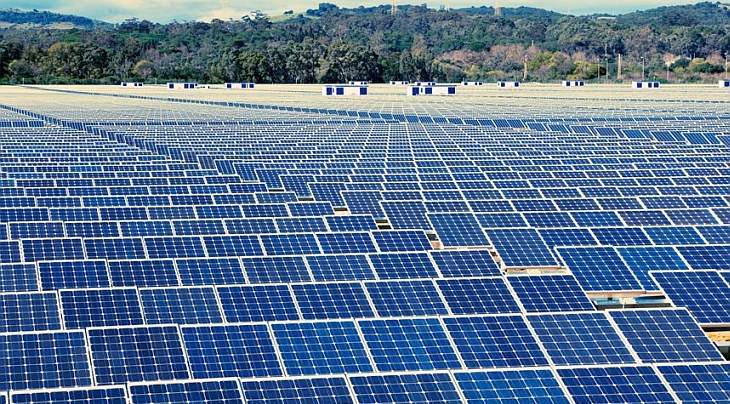The government on Thursday outlined plans to provide £300m worth of support subsidies to the renewable power industry this autumn but has angered the solar industry and been accused of not providing value for money, according to The Guardian.
The budget for a new auction system for green electricity schemes was expected to be a little over £200m but has been raised using cash that was underspent in previous funding rounds.
Ed Davey, the energy and climate change secretary, said his new “contract for difference” (CfD) scheme, paid for by the consumer, would help underwrite the development of renewable energy that would reduce reliance on imported gas.
“We are transforming the UK’s energy sector, dealing with a legacy of underinvestment to build a new generation of clean, secure power supplies that reduce our reliance on volatile foreign markets.
“Average annual investment in renewables has doubled since 2010 – with a record breaking £8 billion worth in 2013. By making projects compete for support, we’re making sure that consumers get the best possible deal as well as a secure and clean power sector.”
But the CfD auction system has been purposefully skewed towards the less established – and more expensive – sectors such as offshore wind and tidal and away from the cheaper and more mature technologies such as onshore wind and solar.
A previous system of subsidy support – the renewable obligation (RO) – is being phased out in 2017 for most industries but this has been fast-forwarded for large scale solar arrays to April next year.
The Department of Energy and Climate change (Decc) says that the move has been made because solar is using up too much of the overall subsidy budget but the Solar Trade Association denied this.
“Solar has been the rising star in the coalition’s renewable energy programme and has been championed recently by the Prime Minister at the UN and by Ministers at conference,” said Paul Barwell, chief executive of the STA.
“Why is the UK government putting this industry’s incredible achievements on solar power at risk? To curtail its growth now is just perverse and unjustified on budgetary grounds – solar has only consumed around 1% of the renewables obligation budget,” he added.
He was supported by Friends of the Earth, whose renewable energy campaigner, Alasdair Cameron, argued the government move would be bad news for jobs, the climate and people wanting to plug into clean power.
“Solar could be cheaper than fossil fuels in just a few years, but it needs a little more help from government to get it there. Failure to invest now will mean a huge missed opportunity for the UK economy,” he said.
The raised budget to £300m has been welcomed by the wider renewable power sector but industry officials said the complex structure and cost would unfairly benefit large utilities at the expense of smaller and medium-sized enterprises (SMEs).
Nina Skorupska, chief executive of the Renewable Energy Association, argued “the allocation process is still too risky and complicated for most of the renewable energy independents and SMEs that are trying to break into the UK’s consolidated energy market, further entrenching the dominance of the vertically integrated utilities.
